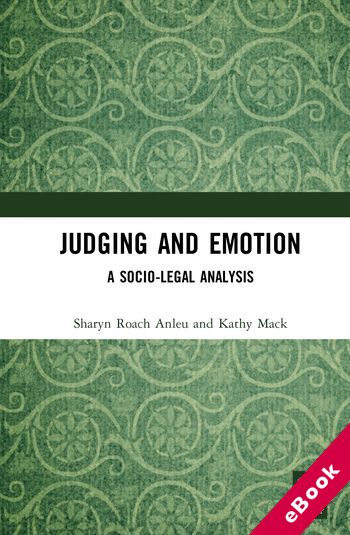
The device(s) you use to access the eBook content must be authorized with an Adobe ID before you download the product otherwise it will fail to register correctly.
For further information see https://www.wildy.com/ebook-formats
Once the order is confirmed an automated e-mail will be sent to you to allow you to download the eBook.
All eBooks are supplied firm sale and cannot be returned. If you believe there is a fault with your eBook then contact us on ebooks@wildy.com and we will help in resolving the issue. This does not affect your statutory rights.
Judges embody impartial legal authority. They are the nexus between formal abstract law, the legal institution of the court, and the practical tasks of making and communicating decisions. Because emotions are often viewed as inherently irrational, disorderly, impulsive and personal, and therefore inconsistent with the impartiality required for a legitimate exercise of judicial authority, judging is usually understood to be unemotional. This conventional model of judging emphasises reason over feeling and legal rules over emotion. But, despite these powerful expectations of judicial dispassion and detachment, emotions and emotional capacities are inevitably part of judging and courtroom practice. This book addresses the place of emotion in judicial work. Grounded in empirical data - interviews, observations and surveys - it investigates how judicial officers understand, experience, deploy, display and manage emotions as part of their everyday work, especially in court. Building on a growing interest in emotions - in law and elsewhere - the book offers a much-needed empirical examination of the relationship between judging and emotion, as it considers how tensions between the demand for emotional engagement and the obligation of constraint are managed at the level of the individual judicial officer, and institutionally.